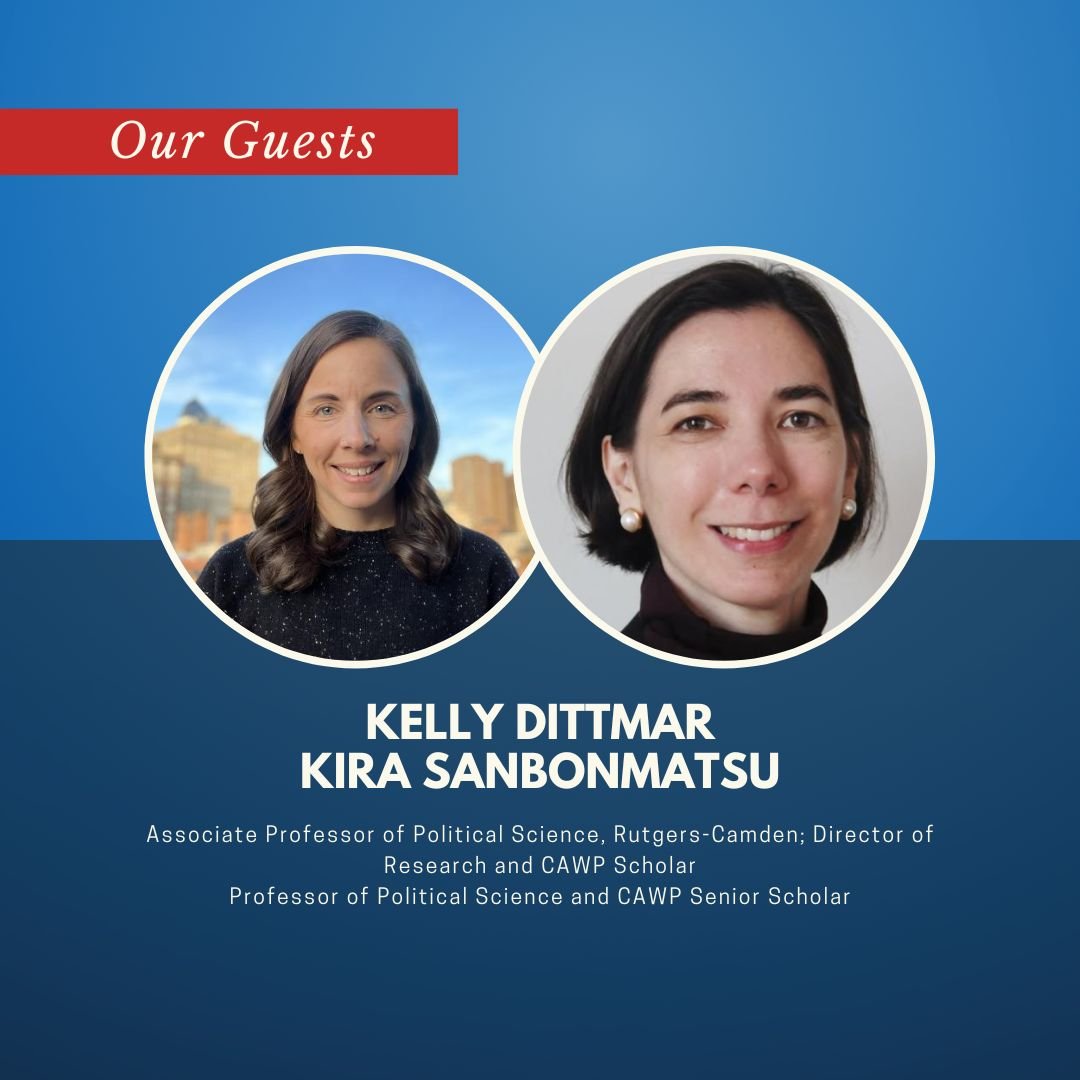Episode 249: The 2024 Electorate? Women!
Our civics teacher is back! L. Joy begins class by discussing the consistent voter turnout of women in elections, emphasizing their significant role in the electorate. She introduces the topic of the episode—women in politics—and highlights the importance of understanding ballot measures, which are crucial yet often overlooked parts of the voting process. For this discussion, L. Joy brings researchers Kelly Dittmar and Kira Sanbonmatsu from the Center for American Women in Politics at Rutgers University to the front of the class to delve deeper into the impact of women in political life.
This week’s Do Now, L. Joy wants us to research ballot measures that will be on our ballots in the upcoming election. She emphasizes the importance of understanding these measures, as they can significantly impact communities by proposing changes to state laws, constitutions, or other important policies. The goal of this Do Now is to ensure that we are informed and ready to make thoughtful decisions on these ballot initiatives when they go to the polls.
L. Joy welcomes researchers Kelly and Kira sharing her appreciation for research and data in civics. They settle in to take a deep dive into women in politics, their influence as political donors and power players, and CAWP’s report “Rethinking Women’s Political Power.”
They start with the question, “Who will be the electorate?” Based on extensive research and data, the response to that question reveals that women are a formidable force in the voting booth. Kelly emphasized that women not only outnumber men in the electorate but also outvoted them in US elections for over four decades. This consistency is especially pronounced among Black women, who have played key roles in significant electoral victories, such as Barack Obama's presidential campaigns in 2008 and 2012. The reliable turnout of women voters, particularly for Democratic candidates, makes them a critical base that political strategies must address.
While women's power at the ballot box is undeniable, L. Joy steered the conversation toward a broader understanding of political power. She spoke to how civic engagement is not just about voting but about building and wielding power in various forms. CAWP's report, "Rethinking Women's Political Power," challenges conventional definitions of power, urging us to look beyond the number of women in elected office. The report examines five states to identify where political power truly lies within their ecosystems. It finds that traditional measures, such as the percentage of women in state legislatures, do not fully capture the complexities of power dynamics. Nevada is cited as an example. While Nevada achieved a milestone as the first state with a majority-women legislature, real political power in the state often resides elsewhere, such as in the Governor's office or county commissions. These insights underscore the need to redefine and expand our understanding of women's political power beyond mere representation in elected offices.
Kira discussed the importance of financial participation in politics, equating it to voting as a vital form of civic engagement. Despite the challenges women face in fundraising, they have proven to be competitive fundraisers when given the chance. There still is a significant donor gap which persists, with men out-giving women by a two-to-one ratio. This disparity limits the representation of women's voices in politics, even though they outnumber men in voting. More financial support from women would not only help more women run for office but also ensure that a diverse range of women's voices are represented in policymaking. To achieve gender parity in political power, women must be supported at every stage, from candidacy to governance.
As the discussion drew to a close, L. Joy posed a thought-provoking question to Kelly and Kira: How should the next generation of women think about and wield political power? They offered insightful prescriptions. Kira advocated for instilling the idea that financial contributions are as crucial as voting, encouraging women to see themselves as integral to the democratic process. Kelly emphasized the importance of broadening young women's understanding of political power, urging them to identify and pursue the sites of power that align with their goals and values. She also highlighted the need for a robust support system, where women uplift and support each other in their political endeavors.
Do Now
Prompt: Research ballot measures that will be on our ballots in the upcoming election.
Links: Ballotpedia.org, usa.gov/state-election-office
Action Items:
Check Their Ballot: Look up any ballot measures that have been approved or are under discussion in your state or local area/ Keep checking, the ballot may not be finalized yet. Try resources like USA.GOV
Research the Issues: Use nonpartisan resources like Ballotpedia to understand the details, pros, and cons of each measure, considering how they might affect you and your community.
Prepare to Vote: Based on your research and personal values, decide how you will vote on each measure and consider getting involved in related campaigns or educating others.
Kelly Dittmar &
Kira Sanbonmatsu
Kelly Dittmar is an Associate Professor of Political Science at Rutgers University–Camden; and Director of Research and Scholar at the Center for American Women and Politics at the Eagleton Institute of Politics. Dittmar’s research focuses on gender and American political institutions.
Kira Sanbonmatsu is Professor of Political Science at Rutgers University and Senior Scholar at the Center for American Women and Politics (CAWP) at the Eagleton Institute of Politics. Her research interests include gender, race/ethnicity, parties, public opinion, state politics, and money and politics.

